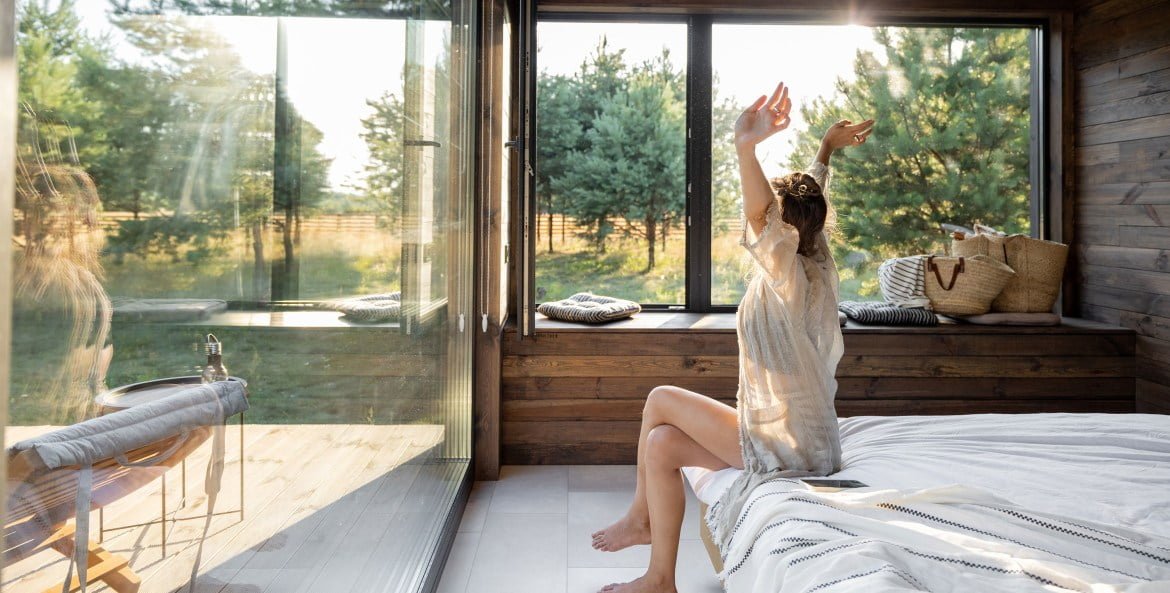Simply booking a room with your preferred hotel chain does not guarantee you will sleep well. Read some good and some bad reviews (a one-time traveler may be okay with something that a seasoned traveler finds unacceptable). You may even find a travel tip within the review to avoid a bad night of sleep (such as request a room on the west side of the building to avoid the midnight train that goes by the east side).
Look at the location of your hotel on Google Maps.
If you are staying at a budget friendly hotel, make sure you are fully aware of the quality of the hotel room and bed. Is saving $30 worth a poor night of sleep?
Ask Questions When You Check-In

If you plan to request a quiet room during check-in, do not assume the front desk clerk will know which rooms are quiet. Make your request specific by asking for a room that is:
Away from the elevator, stairs and ice machine.
Not facing the highway/ interstate/loud intersection/pool.
On a floor higher than the lobby (if a concierge level is available, it may be worth paying for)
Not above or below (or near) a hotel restaurant, bar, or banquet room.
Not next to guests with little kids or babies.
Ask if the hotel has been recently remodeled (unless you are sure it is new). If there has been a recent remodel, request a room in the remodeled section.
Inquire about pillow options. You may wait until you get to your room and give the pillows a try. Many hotels offer a pillow menu, do not be afraid to take advantage of this amenity!
Before you unpack your items, sit for a few minutes of silence. If you can hear the ice machine or another noise that may keep you awake later, request to be moved.
Packing List for Better Sleep
Ear plugs– take up little room and can be a major help if you end up in a noisy room.
Sleep mask– make sure you buy a decent one and give it a test nap at home to make sure it will actually block out light and not leave imprints on your face.
Small bottle of lavender linen spray– use it at home and during travel so your sheets will smell the same at home and on the road. If you do not have room for any more liquids, pack along a USB diffuser or scented plug in.
Chamomile tea- WebMD offers chamomile as a natural sleep aid. Just don’t drink too much tea before bedtime or your bladder will be waking you up before your alarm.
White noise app- download a white noise app so you can block out unexpected noise. Just as suggested with the sleep mask, try it during a test nap at home (when there is noise outside or inside to block out).
Binder Clips- these are great if your curtains do not quite stay closed and you want to block out light.
Establish a Bedtime Routine
Try to maintain the same sleeping routine you have at home when you are on the road.
If you need to work before bed, do not use your laptop in bed. Sit at the desk in your room.
Take a warm bath. A study found the temperature changes caused by taking a bath before bed can increase sleepiness and improve the quality of sleep.
Put the electronics away before bedtime. You likely know playing Candy Crush and reading email before bed on your tablet is not advisable, but you may not realize why it can be worse if you are traveling. The National Sleep Foundation reported that the light from electronic devices, before bedtime, can actually affect your circadian rhythm, which is likely already off if you are experiencing jet lag. Additional disruptions to your circadian rhythm may increase side effects of jet lag.
Listen to music. A study reported a 35% improvement in sleep (better quality and length of sleep) for test subjects that listened to relaxing music prior to turning in. For best results fill your nighttime playlist with music that is 60-80 beats per minute. You can likely plug your phone/music device into the TV for better audio if you do not have a decent travel speaker.
Read a book. You know, like a real, paper book? If you need to wind down before bed, avoid the electronics and just read from a paperback book.
Meditation may help you fall asleep faster. Try a short meditative breathing session like this example from MindSpace to put your mind at ease.
Turn down the room temperature. WebMD recommends finding a comfortable, but cool temperate between 65 and 72 degrees.
Lights Out
Once you are in bed, relax your mind. Count sheep or palm trees, or whatever makes you feel relaxed.
If there is any noise from the room next to you, or the hallway, call the front desk immediately.
